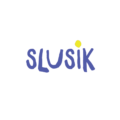About the Project
Service-learning is a teaching strategy that offers students opportunities to learn both in the classroom and in the wider world.
What is service learning?
Service-learning is a teaching strategy that offers students opportunities to learn both in the classroom and in the wider world. This pedagogical tool provides students with chances to directly interact with local agencies and effect change in the community. Thus, service-learning holds the potential to broaden and significantly enhance the learning climate for students. Based on an established theoretical model of academic motivation, the present study examined the effectiveness of service-learning to enhance the learning climate across a variety of academic disciplines.
More than 600 students registered in service-learning courses from more than 30 different disciplines took part in a study in 2011. Results showed that when service-learning contributes to an enhancement of the positivity of the learning climate, then positive forms of motivation, civic skills, problem solving, and appreciation of diversity significantly increased over the course of the semester. Results also showed that type of involvement, amount of inclass discussion, and reflections are important factors contributing to the effectiveness of the service-learning environment.”[1]
Service learning involves using non-formal learning methodologies such as experiential learning and role play, in the classroom and in NGOs in the community. Service Learning enables students to be introduced to the role of civil society and the essential components for it to function, such as volunteering and funding mechanisms as well as the engagement of the local community in identifying challenges and developing appropriate solutions. It also provides the space to reflect, with the support of trained professionals on its value and on its trends and future opportunities and threats, fostering knowledge, understanding and ownership of values and fundamental rights. There is also evidence of the effectiveness of service learning in schools.[2]
[1] The Effectiveness of Service-Learning: It’s Not Always what you Think – Chantal Levesque-Bristol, Timothy D. Knapp, Bradley J. Fisher, 2011 (sagepub.com)
[2] The Development of Civic Competencies at Secondary Level Through Service-Learning Pedagogies | SpringerLink
The project
The purpose of the project SLUSIK is to promote and support social inclusion by enhancing the acquisition of social and civic competences and fostering knowledge, understanding and ownership of values and fundamental rights in school leavers.
The project main target groups, and direct beneficiaries are
- School students (12-16 years old) from participating schools;
- Schools and school teachers;
- High Education Institutions (HEIs);
- Higher Education students (the role models)
- Policy makers;
- Civil Society Organisations (CSOs)/ Non-governmental organisations (NGOs) working in the local community (grassroots organisations).
To enhance the acquisition of social and civic competences, fostering knowledge, understanding and ownership of values and fundamental rights among secondary school students/young people ages 12- 16 in order to contribute to their social inclusion at the local level and in society in general.
SO1: To Upscale Service Learning curricula from Higher Education to Secondary Schools by adapting already existing service learning best practices from Croatia, Slovakia, Austria, Ireland and role model practice from Spain, ensuring the use of Non-formal Methodologies and Role Models in the adapted models and that they are ready for use in any school across Europe at the end of the project.
SO2: To increase the understanding of, and the use of, “the service learning” among the education practitioners in schools and within the wider educational providers community of practitioners.
SO3: To increase awareness, motivation and competence of secondary school educational practitioners with regard to inclusive educational approaches, Non-Formal learning methodologies, Role Models, and the promotion of common values.
SO4: To engage and improve the skills and competences of students from the universities experienced in service learning to act as role models to the secondary school students who are being introduced to service learning as part of their curriculum.
R1: Based on the partners’ expertise and desk research new models of service learning to be piloted in secondary schools will be developed.
R2: Training materials and the methodology for pilots to build the capacity of teachers and university students to act as role models to implement the new models will be developed.
R3: Set of field pilots that include grassroots activities initiated by young people addressing community needs and in collaboration with local CSOs/ NGOs will be implemented and related data collected.
R4: A community of practice will be created, the practitioners trained and motivated to take part in its dynamic, network, cooperate, exchange ideas about existing curricula, teaching methodologies and NFE tools, including role models as good practice for service learning leading to greater social inclusion for young people.
Results throughout WP’s:
- Project handbook and reports (internal, Interim and Final)
- State of the Art Report
- Upscaled model of Service Learning (Curricula design)
- Teacher and Role Models Training Tool Kit
- Pilot Phase R1. Upscaled models are piloted in field trials
- Quality Assurance and Monitoring Plan; Evaluation report of the effectiveness of the Piloted models; External Evaluation report
- Visibility and sustainability plan and materials created; National dissemination events; Project website/platform with features to support the Community of Practice.
Plans for advocacy on the local level; European Advocacy plan; Policy brief; Final conference in Brussels.
Coming soon.
